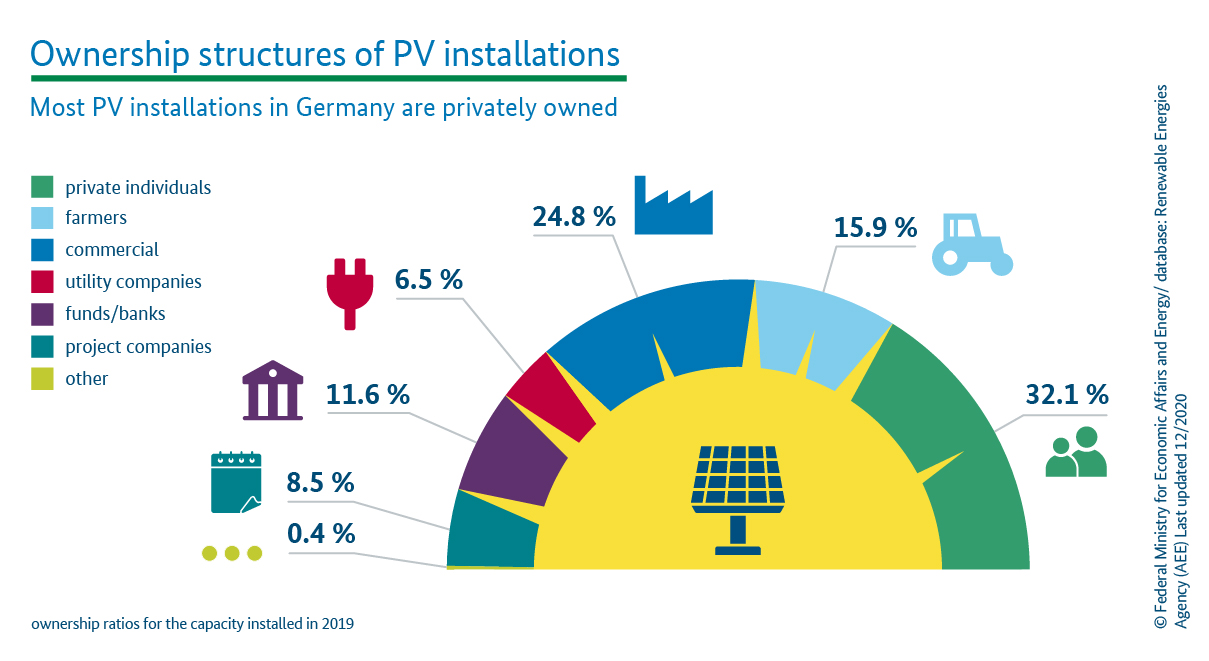En vogue: privately-owned PV installations
Many Germans are particularly fond of the solar electricity component within the German energy transition. Public approval rates for solar installations, their construction and enlargement are high. A study has now shown that a large portion of the installations in Germany are privately owned.
 © Federal Ministry for Economic Affairs and Energy/ database: Renewable Energies Agency (AEE) Last updated 12/2020
© Federal Ministry for Economic Affairs and Energy/ database: Renewable Energies Agency (AEE) Last updated 12/2020
The share of renewables in our electricity generation is continuously rising. In 2020, the combined installed capacity of Germany’s renewables installations was 131 gigawatts. Solar energy is particularly effective and popular with the public. According to a study conducted by the trend: research institute, the combined installed capacity of PV installations in Germany had already reached 45,800 megawatts in 2019.
The study, which was commissioned by the Renewable Energies Agency (AEE), also looked at the ownership structure of PV installations. It found that almost one third of the installed capacity (32.1%) was privately owned in 2019. This shows that German citizens are playing a decisive role in the energy transition.
Private citizens and farmers combined own almost half of the capacity installed in Germany
If you also count in solar capacity owned by farmers (15.9%), this adds up to almost half of Germany’s installed solar capacity (approx. 48%). Another finding of the study was that people in commerce also like to use solar power. They owned approx. 24.8% of Germany’s installed capacity in 2019. By contrast, only just above 6% of the installed capacity was owned by utilities.
An acceptance study conducted by the Renewable Energies Agency confirmed that the German public approves of solar energy. In fact, solar farms were the type of renewable energy to receive the highest approval rate at 62%. The authors of the study explain in their conclusions that those who have experienced PV installations in their daily lives are less likely to have reservations about solar energy than others. For instance, 76% of those surveyed who lived close to a solar farm approve of the construction of a solar farm in their direct neighbourhood.

